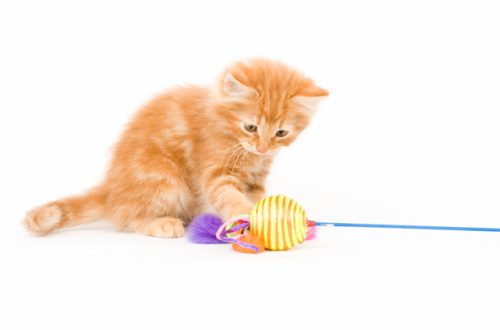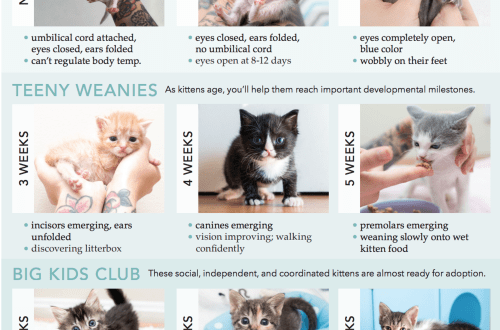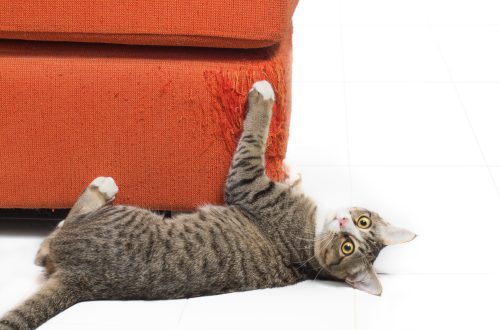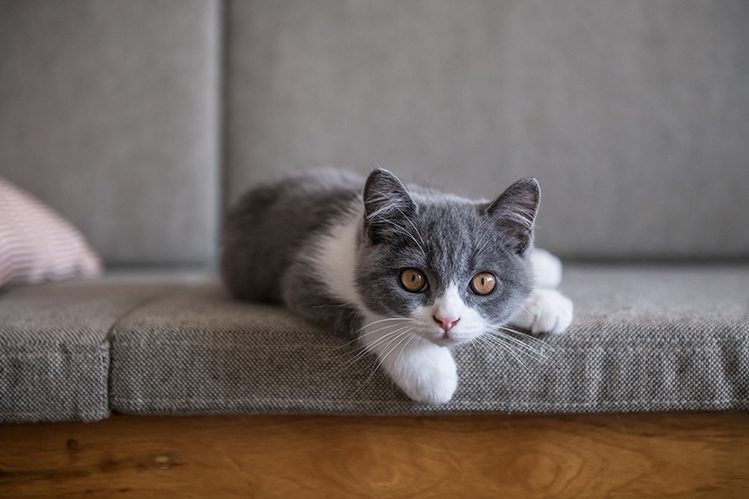
మూడు నుండి ఆరు నెలల నుండి పిల్లి గురించి ప్రధాన విషయం
A kitten at three months is often separated from its mother for the first time and goes to new owners. And at six months, he is already comparable in size to an adult cat. A growing organism has many of the needs of an adult cat, but your pet still continues to socialize and retain the habits of a baby. We will tell you what details you should pay attention to so that your ward will safely go through this period of growing up.
Habits and character
A kitten at three months old is quite independent. Usually the baby is already accustomed to the tray, uses a scratching post, successfully switched from mother’s milk to kitten food. Often breeders start distributing kittens from the age of three months.
If you become the proud owner of a furry four-legged friend, check that the veterinary passport contains marks about the necessary vaccinations. Find out in detail what he has been fed lately. After moving to a new place of residence, experts advise not to disturb the kitten too much and feed it for the first 10 days with the same food that the baby was fed before. For a baby, a new home is a lot of stress. If you do not put pressure on your ward, he will soon begin to explore the surrounding space.
Games and communication will help to make friends with a new family member. Toys for little kittens – an opportunity to develop hunting skills, socialize, get comfortable. Felinologists advise light toys for kittens – such that the baby does not have to work to toss the toy with his paws. Toys should not be small and too hard – at the moment of changing milk teeth to molars, your ward will probably want to chew on them. It is important that they do not have parts that can be chewed off and swallowed. It is better to buy toys for small kittens in a pet store – this guarantees you the quality and safe composition of the product.
At the age of three to six months, the muscular and bone skeleton is actively formed. Fishing rods – mice, a laser pointer – will help develop mobility and strengthen muscles. If the kitten has guessed that you are in charge of the process, postpone the game for a while. By the next time, the kid will already forget about his guess and start chasing the bait again.
You can buy a whole play set for a kitten at a pet store. Even if you are not around, the kitten will be able to train and move – climb on special posts and platforms installed at different heights. Whatever the toys for your pet, the most important thing is to use them more often in the game and communication with a four-legged friend. Kittens are in dire need of affection, attention of the owner, outdoor games.

Surround your baby with your care and love. But do not forget that from the first days in a new house, he must be gradually and gently taught the rules of communication with family members and the rules of behavior in the house, to convey what can and cannot be done.
Most importantly, under no circumstances punish the kitten, do not use physical force. Babies have a short-term memory, and after a few seconds of misconduct, the baby will completely forget about what they have done and your dissatisfaction will become a bolt from the blue for him. Kittens subtly feel the state of the owner, sensitively respond to him – and the punishment will really become a huge stress for him, which will undermine his trust in you.
This does not mean that all missteps need to be let down by the kitten “from the paws.” You just need to act slowly and carefully. Forget about the use of force – it never leads to anything good. It is better to work with intonation, claps, and in extreme cases, “scare” the kitten with a spray gun. Stop unwanted behavior only when the kitten is caught in the act. For example, when he sits down on business in the wrong place. But after a couple of minutes after that, reprimanding is completely pointless.
Be friendly, but confident and consistent. If you forbid something to a kitten, then forbid it forever. Do not make indulgences, otherwise the baby will not understand what behavior is correct. Do not let your pet bite and scratch your hands even during the game – so that this habit does not persist in the future. It is unlikely that you will like it if an already grown-up cat jokingly takes you for a palm tree and climbs up your leg, leaving red marks.
Teeth and nutrition
In the period from three to six months, not only muscles and bones grow, but also the teeth of a little hunter. At three months, a kitten has a full set of 26 milk teeth. In three to five months, they will gradually begin to be replaced by indigenous ones. The process will be completed by about eight months of age. Check your pet’s teeth. The change of dairy to indigenous usually goes smoothly for kittens, but minor problems like swelling of the gums are best detected in a timely manner.
Decide on a kitten’s diet. It can be a special ready-made food for kittens or food “from the table”. A complete food designed to meet all the needs of a developing kitten. Choose the best quality food – this is the guarantee of the health of your ward. The packaging always indicates the age of the kitten by months, be sure to pay attention to this. The diet plan from the table should be discussed with the veterinarian. In this case, in addition to food, the baby will need vitamins. Make sure your child has constant access to clean, fresh drinking water.
How many times a day to feed a kitten? At three months, it is absolutely normal to feed the baby five to seven times a day in small portions. At four months, you can transfer your pet to four meals a day. By five months, your ward is ready to switch to three meals a day. Make sure your baby is eating well, but not overeating. With the right diet, the kitten will grow up healthy, beautiful and will not suffer from overweight, as well as other diseases that overeating can cause.
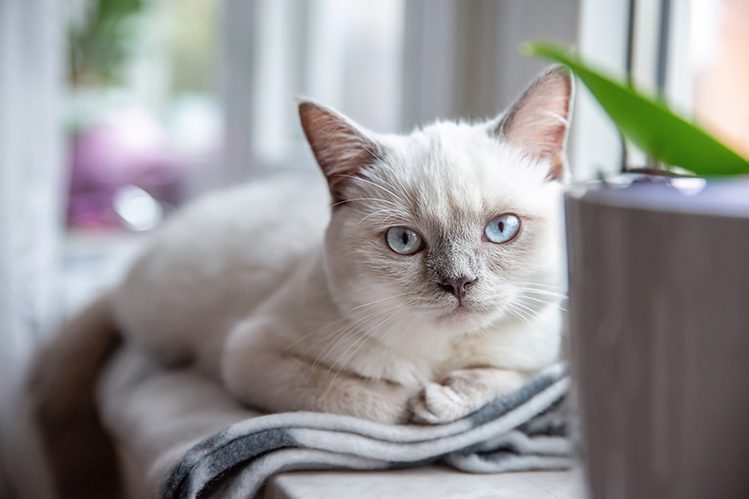
Development and health
Usually, the first vaccinations against infectious diseases begin to be given to kittens from the age of two months. The drugs are produced in the form of complex vaccines containing 3-4 components each, this allows several injections to be replaced by one. Revaccination is carried out after three weeks. As a rule, breeders carry out these procedures before transferring a kitten to new owners. If, for some reason, vaccinations have not been made, then you need to do them as soon as possible.
Rabies vaccination is recommended at the age of 3-4 months. The pet’s vaccination schedule can be adjusted by the veterinarian depending on the selected drug (vaccine). Vaccination is carried out only in clinically healthy animals.
Even if the kitten’s veterinary passport contains notes on all necessary vaccinations and treatments, carefully follow the schedule of revaccinations and treatments for external and internal parasites. Revaccinations after the first year of life are then performed once a year. The choice of the schedule of vaccination and the necessary types of vaccines is carried out only by a veterinarian.
In six months, kittens gradually begin puberty. At the age of 7 to 10 months (rarely at the age of one year), cats begin their first estrus. This is how puberty sets in, but this does not mean that the young cat is ready to become a mother. The body continues to form, so it is recommended to knit a cat only after several estrus. Some owners choose to spay at six months of age. This can be done a little later, but the older the cat is, the more difficult it will be for her to undergo surgery. Males are usually castrated at the age of eight to ten months, preferably up to a year.
A teenage kitten needs to be accustomed to regular hygiene procedures. If you need to inspect and rinse, clean the kitten’s eyes and ears, praise your ward, talk to him affectionately. End the ritual with praise and treats for your pet.
The same with combing. A slicker brush or furminator should not scare a kitten. If you first play, praise and treat the baby with something, he will perceive combing as a sign of your attention to his person. A small kitten has almost nothing to comb out. But a teenage kitten at the age of five to eight months will begin the first molt. If combing is something familiar for your ward, then changing the coat to an adult will not be accompanied by hairballs throughout the house. The danger is that your four-legged friend may swallow his own fur.
By the molt, the color of the baby will already begin to gradually level off. By 10 months, your pet’s color will be almost final. Eye color in kittens is formed by four months. Then it can become a little more saturated.
Already at 4-8 weeks of life, kittens can have their first nail clipping. This is done so that the kids do not injure each other during the game. If you have never shortened claws of kittens before, it is better to entrust it to a specialist: at least for the first time. At home, the pet will be able to scratch the scratching post. Most kittens are advised to buy a horizontal scratching post – so it will be easier for the baby to reach.
After three months, the kitten stops growing rapidly and changing every week. By six months, he slows down growth. Then it will get stronger, muscles will develop, and the fat layer will increase slightly. But if you have already managed to raise an active, smart, healthy six-month-old kitten, then you have overcome the most difficult trials together and have become true friends.



